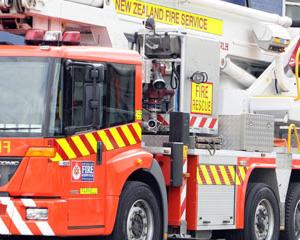
Methamphetamine, also known as P, is much easier for drug users to access than cannabis, especially for those living outside three main cities, a study shows.
Drug experts are renewing calls for more addiction services for methamphetamine to be introduced in the regions in the wake of the study by Massey University highlighting an oversupply of the drug.
Of the 6100 drug users who responded to the anonymous online survey, more than 50% of P users said it was "very easy'' to get, while only 14% of cannabis users thought cannabis was so easily accessible.
It was also more available Northland, with 65% of users saying it was easy to access.
It could also be easily obtained in the Bay of Plenty, Hawke's Bay, Gisborne, Waikato, Manawatu-Whanganui, West Coast and Southland.
It was less accessible in areas such as Otago, Canterbury, Wellington and Auckland.
Lead researcher Associate Prof Chris Wilkins said he was extremely surprised at just how accessible methamphetamine was compared with cannabis.
He had not expected the research to show it was more highly available everywhere and that cannabis was quite hard to get.
The research showed more work to address methamphetamine issues needed to be offered in the regions and not just the main centres of Auckland, Wellington and Christchurch - where most drug facility centres were based, he said.
New Zealand Drug Foundation executive director Ross Bell said there was a "real problem'' with methamphetamine use in regional New Zealand where there was no help available.
"Meth has moved out of the big cities and it's moved into regional New Zealand, and that is parts of the country where people don't have the same kind of access to . . . really good health and treatment service.''
Mr Bell said the previous National government had piloted a programme in Northland in which police were referring anyone they arrested for meth offences to DHB treatment services.
He hoped the outcome of the Government Inquiry into Mental Health and Addictions would result in a better picture of where to put increased spending on drug and alcohol treatment.
However, he warned that the study only compared the availability of the two drugs, not the popularity of them, or how one was more popular than the other.
But Matua Raki national manager Vanessa Caldwell said the findings confirmed the programme's own treatment statistics and feedback over the past two years that meth had overtaken alcohol and cannabis to become the drug of choice.
Dr Caldwell said more services were needed to cope with the demand from people seeking help for P addictions given how readily available it was.
"The availability means people are going to use it, develop potential problems and need assistance and so we do need to provide that and we can't continue to rely on police and emergency services to actually do that without a huge investment to increase the level of support.''
The survey ran from November to February and the average age of those who responded was 29.
- By Nikki Preston












